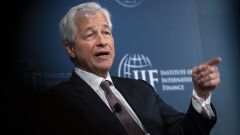Over the past 10 years, San Francisco-based Plaid has become a ubiquitous, all-powerful force in the financial services industry. Plaid works mostly behind the scenes, funneling customer data between banks and fintechs but also offering an increasing array of services to them.
The Consumer Financial Protection Bureau's anticipated data-sharing rule, which the agency will write to meet a requirement of section 1033 of the Dodd-Frank Act, will have a big impact on Plaid, the Grand Central Terminal of bank data. The Federal Reserve's efforts to modernize the payment system with FedNow will also affect the company, Perret said.
Plaid recently launched new products for identity matching, risk and fraud. And it continues to move its clients from screen scraping to a model of data sharing involving application programming interfaces.
"If I had a magic wand, I'd love to see an end to screen scraping at some point achievable," CEO Zach Perret said in an interview. "The practical realities are that there are many small banks that don't have solutions for this in place yet. So it probably won't be 2023, but maybe it's 2024 that we can achieve an end to screen scraping."
In 2020, when Visa and Plaid planned to merge, a Department of Justice complaint that kiboshed the deal included a picture of the threat Plaid posed to the industry that a Visa executive had drawn on a napkin. It showed a volcano-like iceberg. In the visible tip of the iceberg were written, "Bank connections, Account validation, Asset confirmation." Unseen below the water line were the phrases, "Fraud tools & reporting, Identity matching, Credit decisioning/underwriting, Payments rails and delivery, Advertising & marketing, Financial management." The gist of the DOJ's overall complaint about the deal was that Visa was already a monopoly and merging with Plaid would make it far more so. The government was also concerned that Plaid was planning to build its own alternative to Visa debit.
Perret said Plaid is simply building services around connecting bank accounts to fintechs.
"Our job is to deal with a lot of the complexity of the financial system and simplify it into something that consumers and our customers can interact with really easily," he said. People have to verify their identity, for example, when they sign up for a new financial product, so Plaid offers identity verification. Risk and fraud analysis for accounts that have just been linked are also a fit for the company, he said.
As for the DOJ's charge that Plaid is building a competing debit system that could threaten Visa and Mastercard, Perret said Plaid supports customers that use all the existing payment mechanisms, including the automated clearing house, credit debit cards and wires.
"Our primary role is accelerating this concept of bank-linked everything — bank-linked payments, for example," he said. "We are broadly very supportive, though, of financial rail innovation."
–Penny Crosman 



























